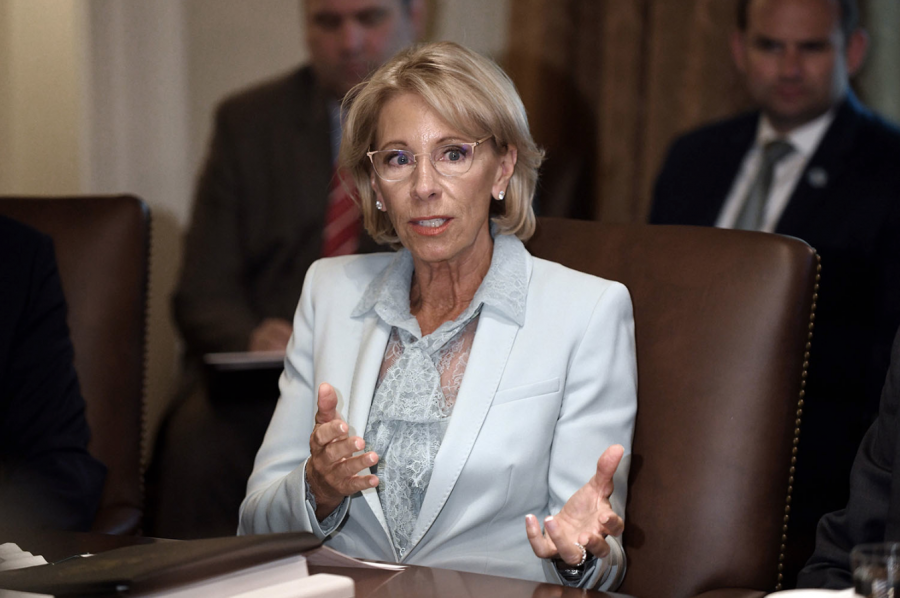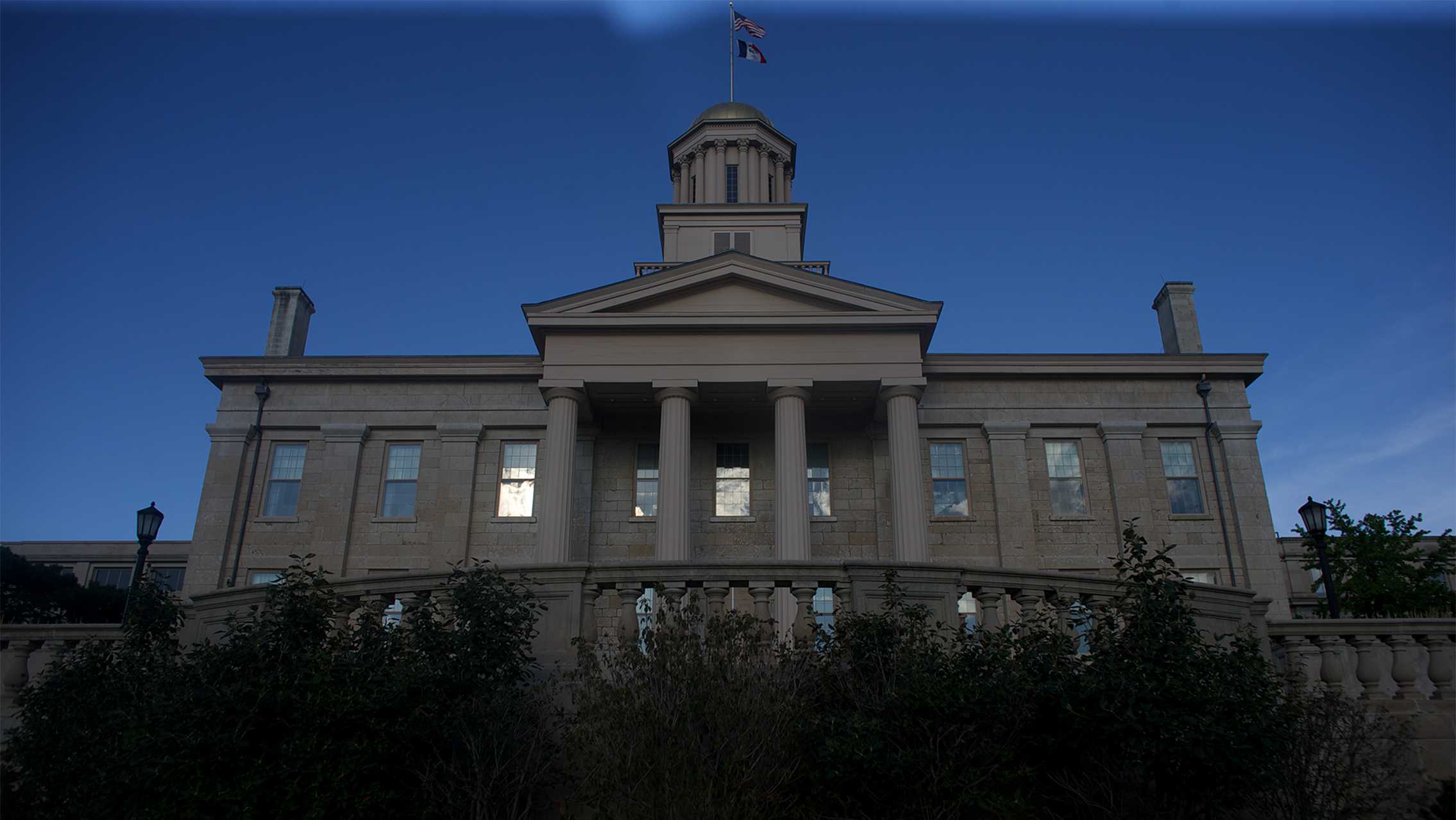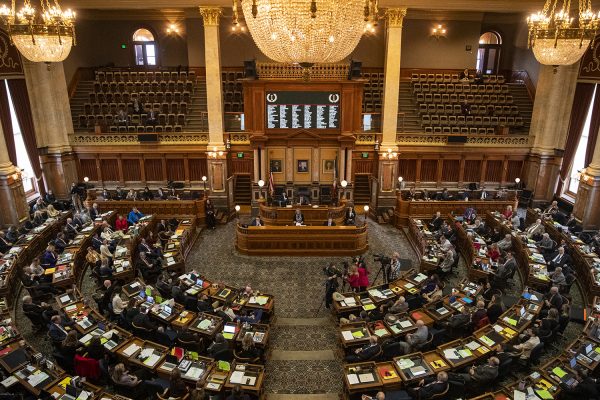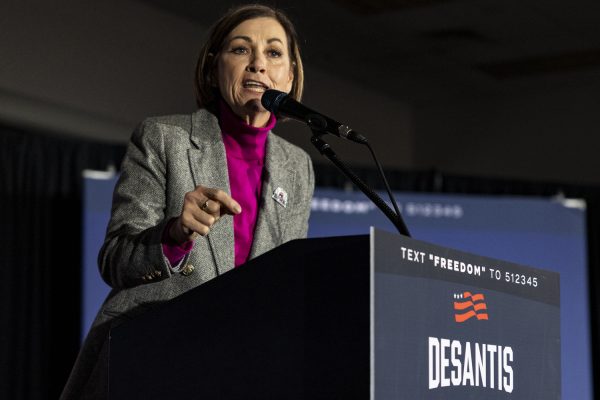Iowa leaders among nearly 97,000 comments on Title IX guidelines
The University of Iowa and Iowa politicians are asking Betsy Devos and the Education Department to allow schools more flexibility with sexual-misconduct cases.
Secretary of Education Betsy DeVos speaks during a Cabinet meeting in the Cabinet Room of the White House on Wednesday, July 18, 2018 in Washington, D.C.
February 1, 2019
Higher-education leaders and University of Iowa officials, students, and organizations added public comments requesting more flexibility in proposed changes in how federally funded educational institutions address sexual-misconduct cases.
They were among nearly 97,000 comments submitted to the U.S. Education Department on proposed changes to Title IX guidelines in a comment period that began in November 2018 and ended Wednesday. Many of the Iowa comments critiqued portions of the proposed changes such as a cross-examination requirement and a strict guideline determining which cases fell under institutions’ jurisdiction.
The proposed changes aim to bolster protections for those accused of sexual misconduct as well as clarify how institutions should handle cases, Education Secretary Betsy Devos said in a statement.
In a public comment submitted Wednesday on behalf of the UI, Sexual Misconduct Response Coordinator Monique DiCarlo wrote that while the UI appreciated the chance for public input, “we worry that the proposed regulations would impose a one-size-fits-all model that would limit our ability to tailor our policies and procedures to our specific campus community.”
Specifically, DiCarlo’s letter asked for changes in:
• A clarification within the new guidelines on how universities should respond if a person in the case is under the age of 18.
• Requirement of cross examination: DiCarlo wrote that the requirement would lengthen investigations, which she wrote would “hamper our ability to take prompt action,” be an additional cost burden on the university, and could deter survivors of sexual assault from reporting. She strongly urged the department to remove the requirement and give higher-education institutions more flexibility in deciding a procedure, saying the proposal could turn institutes into “quasi court-systems.”
• Standard of evidence: The proposed guidelines would hold institutions to a higher standard of evidence to determine if an assault occurred. DiCarlo questioned in the letter if the higher standard of evidence could be enforced for non-Title IX cases. Under the previous guidelines, institutes needed to find a preponderance of evidence, meaning a standard of “more likely than not,” to determine if an assault had happened.
• Clarification that schools are not prevented from responding to sexual misconduct outside of the requirements in the new guidelines.
RELATED: UI officials address federal proposal to change sexual-assault guidelines
Based on the feedback, the Education Department will decide if the proposed changes will be enacted. This could take a long time given the volume of comments submitted. According to the Administrative Procedures Act, the department is required to review all comments and respond to ones that warrant responses before making a final decision. So far, nearly 10,000 comments have been reviewed and posted online.
Title IX is a civil-rights law that prohibits discrimination on the basis of sex in educational institutions that receive federal funding, which includes public and nearly all private colleges. Guidelines put in place by the Obama administration in 2011 and 2014 expanded the jurisdiction of schools to address sexual assault.
The UI Graduate & Professional Student Government also weighed in on the public comment section, calling the jurisdiction of higher-education institutions too narrow under the proposed rule changes. The proposed guidelines say the institution has jurisdiction over “an education program or activity of the recipient.”
“The vast majority of University of Iowa graduate and professional students live off-campus, and many interactions between students occur outside the scope of an ‘education program or activity, ” the letter read.
The proposed changes would also mandate institutions to abide by a higher standard of evidence. Critics contended that the bar was too low and that people were being punished based on little evidence.
Sen. Janet Petersen, D-Des Moines, the Iowa Senate minority leader, signed a letter with 145 other state legislators across the country in opposition to the Title IX rule change.
Specifically, the group of lawmakers took aim at proposed changes to which cases schools could respond to. Under the rule changes, schools do not have the responsibility to address cases that happened outside of a school activity — including off-campus or online harassment.
The letter also contended that various states’ existing policies addressing sexual harassment would come into conflict with the new rules, creating confusion or misinterpretation.
“The department’s proposed rules would endanger students targeted by sexual harassment and undermine state laws protecting student rights,” the letter read.





















